October 17-18, 2023
Samarkand, Uzbekistan
Hybrid Event: Virtual & In-Person
International Annual Conference on Agriculture and Biotechnology
Conference flyer



O‘zbekcha
The Consortium for the Advancement of Science and Technology (AST Consortium) and Samarkand State University are delighted to announce the upcoming International Annual Conference on Agriculture and Biotechnology (IACAB 2023). The conference will be held on October 17-18, 2023, in Samarkand, Uzbekistan. The IACAB 2023 Conference will attract researchers, scientists, academics, and industry professionals from all over the world. The conference’s primary objective is to provide a platform for attendees to share their latest research findings, exchange ideas, and discuss current challenges and solutions in agriculture and biotechnology. IACAB 2023 Conference aims to foster collaboration, promote innovation, and inspire new research projects in the field. This year conference will be attended by 400 in-person participants from 20+ countries, in addition to more than 850 virtual participants from 40+ countries, representing all major areas in agriculture, biotechnology, and food science.
About IACAB 2023
We welcome researchers and professionals from different backgrounds to submit their abstracts and participate in this exciting event. The IACAB 2023 Conference promises to be a remarkable opportunity to learn, network, and advance your research in agriculture and biotechnology. The conference covers a wide range of topics related to agriculture and biotechnology, including plant breeding and genetics, crop protection, plant biotechnology, animal biotechnology, food safety, and agricultural sustainability. Participants can present their research findings through oral presentations, poster sessions, and workshops. The conference also includes keynote speeches from leading experts in the field, as well as panel discussions and networking opportunities. The conference provides a valuable opportunity for participants to connect with colleagues, learn about new developments in their field, and collaborate on research projects. The conference will be held at the Samarkand State University, one of the leading universities of Uzbekistan and Central Asia.
Scope & Themes
The conference will cover a broad range of topics related to agriculture and technology including, but not limited to:
1. Sustainable Agriculture Practices.
2. Emerging Technology, Innovation, and Research Advances in Plant Science.
3. Emerging Technology, Innovation, and Research Advances in Animal Husbandry.
4. Agricultural Robotics and Automation.
5. Precision Agriculture and Smart Farming Technologies.
6. Crop Improvement and Breeding Techniques.
7. Agroecology and Sustainable Farming Systems.
8. Climate Change and Adaptation Strategies in Agriculture.
9. Management of Land and Water Resources in Agriculture.
10. Advances in Industrial Biotechnology.
11. Biotechnology Applications in Crop Production.
12. Microbial Biotechnology in Agriculture.
13. Genetically Modified Organisms: Benefits and Concerns.
14. Biopharmaceuticals and Medicinal Plants.
15. Nutritional Science and Functional Foods.
16. Novel Approaches in Food Processing and Preservation.
17. Food Safety and Quality Assurance.
18. Food Packaging Innovations.
19. Food Waste Management and Reduction Strategies.
20. Bioremediation and Waste Treatment in Agriculture.
21. Agricultural Policy, Agricultural Economics, and Rural Development.
22. World and Regional Food Security: Tendencies, Strategies, Challenges.
23. Innovations in Agribusiness and Management.
2. Emerging Technology, Innovation, and Research Advances in Plant Science.
3. Emerging Technology, Innovation, and Research Advances in Animal Husbandry.
4. Agricultural Robotics and Automation.
5. Precision Agriculture and Smart Farming Technologies.
6. Crop Improvement and Breeding Techniques.
7. Agroecology and Sustainable Farming Systems.
8. Climate Change and Adaptation Strategies in Agriculture.
9. Management of Land and Water Resources in Agriculture.
10. Advances in Industrial Biotechnology.
11. Biotechnology Applications in Crop Production.
12. Microbial Biotechnology in Agriculture.
13. Genetically Modified Organisms: Benefits and Concerns.
14. Biopharmaceuticals and Medicinal Plants.
15. Nutritional Science and Functional Foods.
16. Novel Approaches in Food Processing and Preservation.
17. Food Safety and Quality Assurance.
18. Food Packaging Innovations.
19. Food Waste Management and Reduction Strategies.
20. Bioremediation and Waste Treatment in Agriculture.
21. Agricultural Policy, Agricultural Economics, and Rural Development.
22. World and Regional Food Security: Tendencies, Strategies, Challenges.
23. Innovations in Agribusiness and Management.
Important Dates
- Online submission opens: February 1, 2023
- Early registration: May 20, 2023
- Standard registration: August 20, 2023
- Late registration: October 1, 2023
- Notification of abstract acceptance: on the rolling basis
- Participation (main program): October 17-18, 2023
- Cultural visits: October 19-20, 2023
- Full paper submission deadline: November 10, 2023
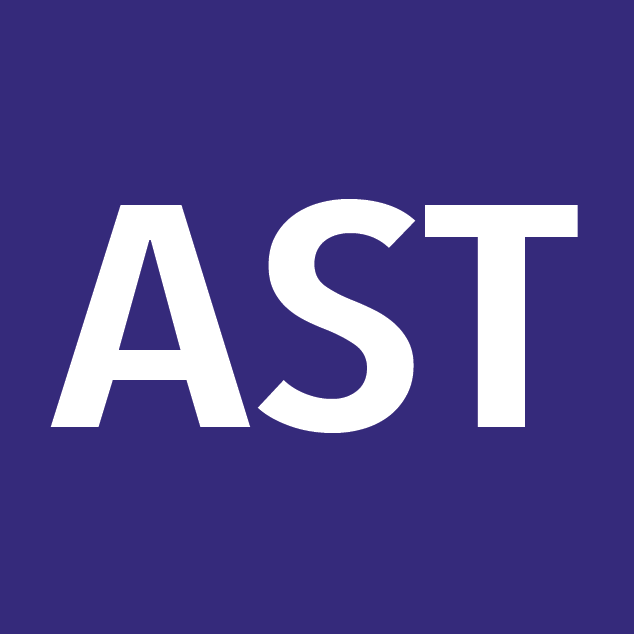
A network of research institutions and educational organizations, promoting latest advances in science and technology.
AST Consortium
Tashkent, Uzbekistan

A classical higher educational institution, famous not only in Uzbekistan but also in many countries of the world.
Samarkand State University
Samarkand, Uzbekistan
Organizers, Partners, & Sponsors
The Consortium partners with a number of organizations to support the international conference and foster scientific communication and exchange between universities, research institutions, and industrial partners.
Supporting organizations
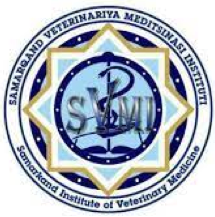
Samarkand Institute of Veterinary Medicine, Animal Husbandry and Biotechnology
Samarkand, Uzbekistan
One of the largest specialized universities in Central Asia.

Kazakh State Agrarian Research University
Almaty, Uzbekistan
The leading national agrarian university in the Republic of Kazakhstan
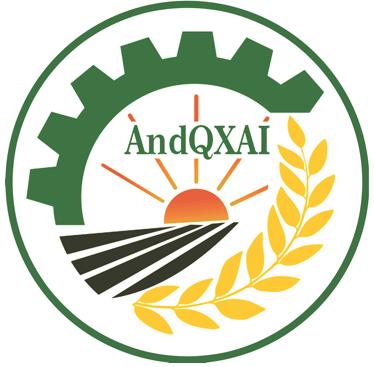
Andijan Institute of Agriculture and Agrotechnologies
Andijan, Uzbekistan
One of the most respected higher education institutions of Uzbekistan in agriculture.
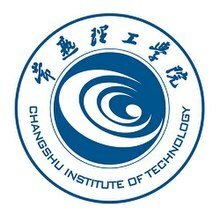
Changshu Institute of Technology
Changshu, China
An outstanding university in polytechnics and sciences of technological application.
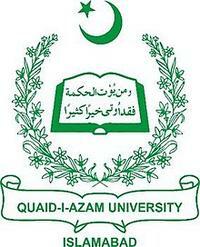
Quaid-i-Azam University
Islamabad, Pakistan
One of the top ranked universities of Pakistan in a number of fields.
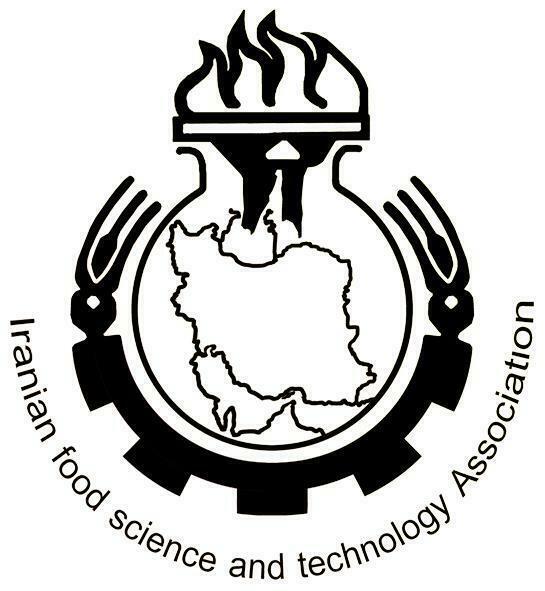
Iran Food Science and Industry Association
Tehran, Iran
The oldest professional association in the field of food science in Iran.
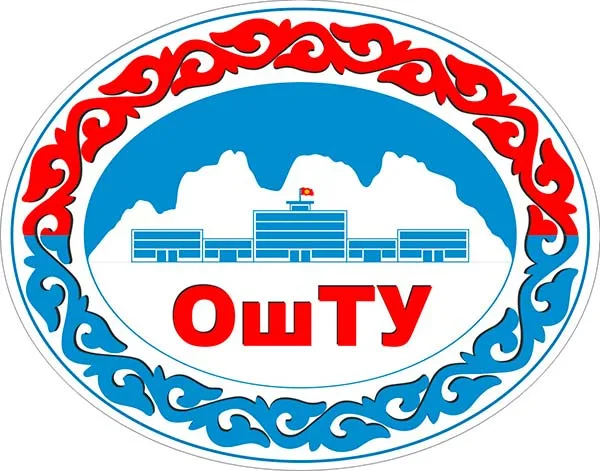
Osh Technological University
Osh, Kyrgyz Republic
Leading technical university in the country, with strong research infrastructure.
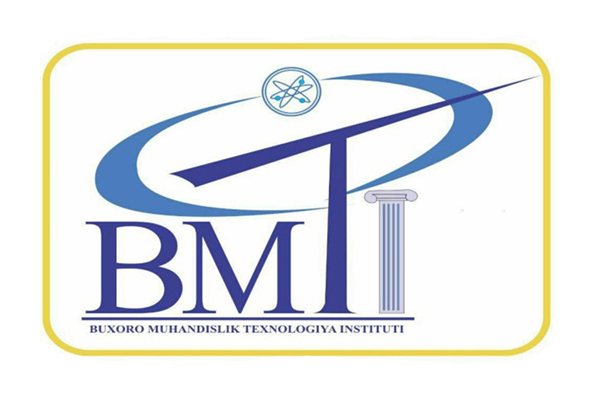
Bukhara Institute of Engineering and Technology
Bukhara, Uzbekistan
The oldest university in Bukhara region in the field of technology and engineering.
Ertan Yildirim, PhD, Professor
Chairperson, Program Committee
Atatürk University, Faculty of Agriculture, Erzurum, Turkey
Chairperson, Program Committee
Atatürk University, Faculty of Agriculture, Erzurum, Turkey
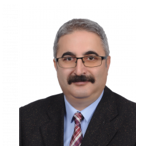
Conference Chairs
Akmal R. Akhatov, Doctor of Technical Sciences, Professor, Vice-Rector for International Cooperation
Chairperson, Organizing Committee
Samarkand State University, Samarkand, Uzbekistan
Chairperson, Organizing Committee
Samarkand State University, Samarkand, Uzbekistan

- Dr. Kanat M. Tireuov, Professor, Chairman of the Board - Rector of the S. Seifullin Kazakh Agrotechnical Research University, Astana, Kazakhstan.
- Dr. Kristina Toderich, Professor, International Platform for Dryland Research and Education, Tottori University, Tottori, Japan.
- Dr. Hakimjon A. Hushvaktov, Professor, Vice-Rector for Research and Innovations, Samarkand State University, Samarkand, Uzbekistan.
- Dr. Moreno Toselli, Associate Professor, Department of Agricultural and Food Sciences, University of Bologna, Bologna, Italy.
- Dr. Toshpulot F. Rajabov, Professor, Director of the Institute of Agrobiotechnology and Food Security, Samarkand State University, Samarkand, Uzbekistan.
- Dr. Gavhar Dushanova, Professor, Head of the Department of Biotechnology, Samarkand State University, Samarkand, Uzbekistan.
- Dr. Zafar Ismailov, Professor, Department of Biotechnology, Samarkand State University, Samarkand, Uzbekistan.
- Dr. Salikh Tashpulatov, Professor, Chairperson of the Consortium for the Advancement of Science and Technology, Tashkent, Uzbekistan.
- Dr. Dani Sarsekova, Professor, Kazakh State Agrarian Research University, Almaty, Kazakhstan.
Organizing Committee Members
- Dr. Diana Di Gioia, Department of Agricultural and Food Sciences, University of Bologna, Bologna, Italy.
- Dr. Ferenc Lantos, Plant Science and Environmental Protection Institute, University of Szeged, Szeged, Hungary.
- Dr. Haradhan Kolya, Jeonbuk National University, Jeonju, Republic of Korea.
- Dr. Salim Gasmi, University Larbi Tebessi, Tebessa, Algeria.
- Dr. Mihaela Ivanova, University of Food Technologies, Plovdiv, Bulgaria.
- Dr. Maria Momchilova, Institute of Food Preservation and Quality, Plovdiv, Bulgaria.
- Dr. Mohsen Barzegar, Tarbiat Modares University, Tehran, Iran.
- Dr. Ashabil Aygan, Kahramanmaras Sutcu Imam University, Kahramanmaras, Turkey.
- Dr. Aamir Hussain Dar, Department of Food Technology, Islamic University of Science and Technology Awantipora Kashmir, India.
Program Committee Members
Book of Abstracts
We are happy to announce that we offer a book of abstracts as a publishing opportunity for all abstracts submitted and accepted. The book of abstracts contains a brief summary of each paper presented at the conference and will be made available online to all conference attendees. The book of abstracts is published online on the conference website.
We are happy to announce that we offer a book of abstracts as a publishing opportunity for all abstracts submitted and accepted. The book of abstracts contains a brief summary of each paper presented at the conference and will be made available online to all conference attendees. The book of abstracts is published online on the conference website.
Publishing Opportunities
The conference provides numerous publishing opportunities for participants and invited speakers.
Edited Volumes
A number of edited volumes that focus on our conference topics will be published after the conference in cooperation with Springer Nature and Royal Society of Chemistry. The edited volumes provide an opportunity for participants to publish their research as book chapters, and they can be a great way to showcase the latest research and trends in the field. After publication, edited volumes are covered by Scopus, Web of Science, Google Scholar, and others.
A number of edited volumes that focus on our conference topics will be published after the conference in cooperation with Springer Nature and Royal Society of Chemistry. The edited volumes provide an opportunity for participants to publish their research as book chapters, and they can be a great way to showcase the latest research and trends in the field. After publication, edited volumes are covered by Scopus, Web of Science, Google Scholar, and others.
Journal Publication
In addition to the above publishing opportunities, the best papers presented at the conference will be submitted for high-impact academic journals published by Springer Nature, Wiley, Elsevier, and Frontiers. Reviewers and editors of the conference will conduct a quality peer-review process and provide highly valuable recommendations. This type of publication is available by invitation only.
In addition to the above publishing opportunities, the best papers presented at the conference will be submitted for high-impact academic journals published by Springer Nature, Wiley, Elsevier, and Frontiers. Reviewers and editors of the conference will conduct a quality peer-review process and provide highly valuable recommendations. This type of publication is available by invitation only.
Conference Proceedings
All accepted papers presented at the conference will be included in the conference proceedings, which will be published and made available to the participants. The proceedings provide a permanent record of the research presented at the conference. Conference proceedings are covered by Scopus, Web of Science, Google Scholar, and others.
All accepted papers presented at the conference will be included in the conference proceedings, which will be published and made available to the participants. The proceedings provide a permanent record of the research presented at the conference. Conference proceedings are covered by Scopus, Web of Science, Google Scholar, and others.
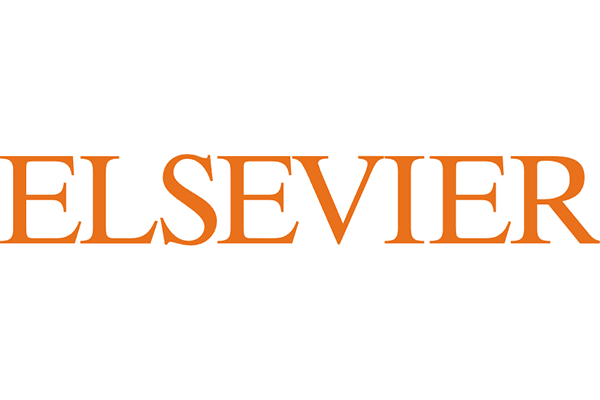






Conference Speakers
The conference features a vibrant list of confirmed speakers who are deeply versed in their field and represent different research areas. The participants of the conference will be able to get acquainted with recognized experts and gain a deeper understanding of the topics discussed.
Dr. Steven R. Evett

Research Soil Scientist, Acting Laboratory Director, USDA ARS Conservation & Production Research Laboratory, Bushland, TX, United States of America
Theme: Plant and Soil Sensor Based Irrigation Automation to Increase Crop Water Productivity
Dr. Steven R. Evett is a prominent figure in the field of soil and water management research. As a research soil scientist, he has made significant contributions to the scientific community through his extensive work in understanding and improving agricultural practices related to feed nutrient management, gas emissions reduction, and soil health promotion in beef and dairy cattle production systems of the Southern Great Plains. His expertise lies in dryland and irrigated crop management under limited water availability and drought conditions.
One of Dr. Evett's notable achievements includes the development of a benchmark evapotranspiration dataset, which has become instrumental in evaluating remote sensing models across the Contiguous United States (CONUS). This dataset, comprising daily and monthly post-processed data, provides researchers and stakeholders with a valuable resource for understanding the intricate relationships between climate, crop growth, and water consumption.
Additionally, Dr. Evett has contributed to the scientific literature through numerous publications and presentations. His work covers a wide range of topics, including the comparison of weighing lysimeter evapotranspiration with energy balance models, forecasting crop water stress indicators using machine learning algorithms, and characterizing evaporative losses from sprinkler irrigation systems. These publications reflect his dedication to advancing knowledge and disseminating research findings to benefit the scientific community and agricultural practitioners.
His articles appear in Computers and Electronics in Agriculture (IF 8.3), Field Crops Research (IF 5.8), Environmental Modeling & Software (IF 4.9), Journal of Integrative Agriculture (IF 4.8), Soil and Tillage Research (IF 6.5), Agronomy Journal (IF 2.1), Hydrological Processes (IF 3.7), Irrigation Science (IF 3.6), Precision Agriculture (IF 6.2), Atmospheric Measurement Techniques (IF 3.8), Journal of Arid Environments (IF 2.7), Geophysical Research Letters (IF 5.2), Agricultural Water Management (IF 6.7), among many others.
One of Dr. Evett's notable achievements includes the development of a benchmark evapotranspiration dataset, which has become instrumental in evaluating remote sensing models across the Contiguous United States (CONUS). This dataset, comprising daily and monthly post-processed data, provides researchers and stakeholders with a valuable resource for understanding the intricate relationships between climate, crop growth, and water consumption.
Additionally, Dr. Evett has contributed to the scientific literature through numerous publications and presentations. His work covers a wide range of topics, including the comparison of weighing lysimeter evapotranspiration with energy balance models, forecasting crop water stress indicators using machine learning algorithms, and characterizing evaporative losses from sprinkler irrigation systems. These publications reflect his dedication to advancing knowledge and disseminating research findings to benefit the scientific community and agricultural practitioners.
His articles appear in Computers and Electronics in Agriculture (IF 8.3), Field Crops Research (IF 5.8), Environmental Modeling & Software (IF 4.9), Journal of Integrative Agriculture (IF 4.8), Soil and Tillage Research (IF 6.5), Agronomy Journal (IF 2.1), Hydrological Processes (IF 3.7), Irrigation Science (IF 3.6), Precision Agriculture (IF 6.2), Atmospheric Measurement Techniques (IF 3.8), Journal of Arid Environments (IF 2.7), Geophysical Research Letters (IF 5.2), Agricultural Water Management (IF 6.7), among many others.
Dr. Ertan Yildirim

Faculty of Agriculture, Ataturk University, Erzurum, Turkey
Theme: Biostimulants in Efficiency in Global Climate Change Agriculture: Developments and Projections
Ertan Yildirim is a distinguished Full Professor in the Department of Horticulture at Atatürk University. He obtained his Ph.D. in Horticulture from Atatürk University in 2003 and served as a visiting scientist at Cornell University from 2004 to 2005. With a primary focus on vegetable growing, breeding, organic agriculture, and stress physiology, Dr. Yildirim is dedicated to both teaching and research.
With a comprehensive background in Agricultural Sciences, Agriculture, Garden Plants, and Vegetable Breeding, Dr. Yildirim has made remarkable contributions to his field. His extensive research work encompasses 360 published papers, demonstrating his prolific output and commitment to advancing knowledge in horticulture. His publications include 155 papers in international journals, with 95 of them being featured in the SCI index. Dr. Yildirim's research has garnered over 2,500 citations in the Web of Science, underscoring the significant impact of his work on the scientific community. His research regularly appears in Physiologia Plantarum (IF 6.4), Scientia Horticulturae (IF 4.3), Plant Growth Regulation (IF 4.2), Rhizosphere (IF 3.7), Journal of Plant Research (IF 2.8), Rendiconti Lincei - Scienze Fisiche e Naturali (IF 2.0), Journal of Material Cycles and Waste Management (IF 3.1), South African Journal of Botany (IF 3.1), Gesunde Pflanzen (IF 3.1).
In addition to his research achievements, Dr. Yildirim has taken on key administrative roles within the academic sphere. He has served as the Director of the Vocational Training School and the Director of the Graduate School of Natural and Applied Sciences, where he displayed exemplary leadership and organizational skills. Dr. Yildirim's expertise in vegetable growing, breeding, organic agriculture, and stress physiology has undoubtedly left an indelible mark on the field of horticulture. His research excellence, coupled with his dedication to teaching and his active involvement in various professional organizations, positions him as a highly respected scholar and a true asset to the academic community.
With a comprehensive background in Agricultural Sciences, Agriculture, Garden Plants, and Vegetable Breeding, Dr. Yildirim has made remarkable contributions to his field. His extensive research work encompasses 360 published papers, demonstrating his prolific output and commitment to advancing knowledge in horticulture. His publications include 155 papers in international journals, with 95 of them being featured in the SCI index. Dr. Yildirim's research has garnered over 2,500 citations in the Web of Science, underscoring the significant impact of his work on the scientific community. His research regularly appears in Physiologia Plantarum (IF 6.4), Scientia Horticulturae (IF 4.3), Plant Growth Regulation (IF 4.2), Rhizosphere (IF 3.7), Journal of Plant Research (IF 2.8), Rendiconti Lincei - Scienze Fisiche e Naturali (IF 2.0), Journal of Material Cycles and Waste Management (IF 3.1), South African Journal of Botany (IF 3.1), Gesunde Pflanzen (IF 3.1).
In addition to his research achievements, Dr. Yildirim has taken on key administrative roles within the academic sphere. He has served as the Director of the Vocational Training School and the Director of the Graduate School of Natural and Applied Sciences, where he displayed exemplary leadership and organizational skills. Dr. Yildirim's expertise in vegetable growing, breeding, organic agriculture, and stress physiology has undoubtedly left an indelible mark on the field of horticulture. His research excellence, coupled with his dedication to teaching and his active involvement in various professional organizations, positions him as a highly respected scholar and a true asset to the academic community.
Dr. Mohammad Reza Naghavi

Agricultural & Natural Resources College, University of Tehran, Karaj, Iran
Theme: Advanced Biotechnological Techniques for the Sustainable Conservation and Production of Medicinal Plants
Prof. Mohammad Reza Naghavi is a renowned plant biologist, doctor, and professor at the University of Tehran. With a specialization in plant biotechnology and metabolite engineering, he has dedicated his career to conducting extensive research projects aimed at addressing fundamental problems in agriculture through the use of modern biotechnology strategies and plant metabolic engineering. Prof. Naghavi's expertise lies in plant metabolic engineering, molecular genetics, and genomics, as well as biotechnology. His research has focused on the utilization of these techniques in the study of medicinal plants such as Taxus, Ferula, Papaver, Crocus, and Artemisia. He obtained his Ph.D. in Plant Breeding-Biotechnology from the University of Tehran in 2001, following his M.A.Sc. in Plant Breeding in 1998 and B.Sc. in Agronomy and Plant Breeding from Isfahan University of Technology in 1995.
Prof. Naghavi has authored several books on topics including agricultural, food, and biological engineering, biotechnology for medicinal plants micropropagation and improvement, plant genetic resources, plant genomics and proteomics, and more. These books demonstrate his breadth of knowledge and commitment to sharing his expertise with others.
His contributions to the scientific community are significant, with 481 articles published and 11 books to his name. He has attended 291 conferences and has received over 3,000 citations, resulting in an h-index of 31. His articles regularly appear in Food Chemistry (IF 8.8), Industrial Crops and Products (IF 5.9), Journal of the Science of Food and Agriculture (IF 4.1), Journal of Photochemistry and Photobiology B: Biology (IF 5.4), Phytochemistry (IF 3.8), Crop & Pasture Science (IF 2.2), Crop Protection (IF 2.8), Plant Breeding (IF 2.0), In Vitro Cellular & Developmental Biology - Plant (IF 2.6).
Some notable publications by Prof. Naghavi include articles on the agronomic and phytochemical evaluation of Iranian cannabis ecotypes, the identification of miRNAs and their target genes in various plant species, and the evaluation of physiological responses of cannabis ecotypes under different irrigation levels. With his extensive research and expertise in plant biotechnology and metabolite engineering, Prof. Mohammad Reza Naghavi continues to contribute significantly to the field of agriculture, particularly in the study of medicinal plants and their potential applications.
Prof. Naghavi has authored several books on topics including agricultural, food, and biological engineering, biotechnology for medicinal plants micropropagation and improvement, plant genetic resources, plant genomics and proteomics, and more. These books demonstrate his breadth of knowledge and commitment to sharing his expertise with others.
His contributions to the scientific community are significant, with 481 articles published and 11 books to his name. He has attended 291 conferences and has received over 3,000 citations, resulting in an h-index of 31. His articles regularly appear in Food Chemistry (IF 8.8), Industrial Crops and Products (IF 5.9), Journal of the Science of Food and Agriculture (IF 4.1), Journal of Photochemistry and Photobiology B: Biology (IF 5.4), Phytochemistry (IF 3.8), Crop & Pasture Science (IF 2.2), Crop Protection (IF 2.8), Plant Breeding (IF 2.0), In Vitro Cellular & Developmental Biology - Plant (IF 2.6).
Some notable publications by Prof. Naghavi include articles on the agronomic and phytochemical evaluation of Iranian cannabis ecotypes, the identification of miRNAs and their target genes in various plant species, and the evaluation of physiological responses of cannabis ecotypes under different irrigation levels. With his extensive research and expertise in plant biotechnology and metabolite engineering, Prof. Mohammad Reza Naghavi continues to contribute significantly to the field of agriculture, particularly in the study of medicinal plants and their potential applications.
Dr. Jerzy H. Czembor

Plant Breeding and Acclimatization Institute — National Research Institute, Radzikow, Blonie, Poland
Theme: ICT for the Efficient Use of Crop Genetic Resources by Farmers, Advisors, Scientists, and Breeders
Dr. Jerzy Henryk Czembor is a renowned Polish agricultural scientist specializing in plant breeding, genetics, and plant pathology. Born in Kluczbork, Poland, in 1965, Czembor has made significant contributions to the field of agricultural sciences, with a focus on integrated pest management, plant genetic resources, and sustainable agriculture systems. Czembor holds the position of Professor at the Plant Breeding and Acclimatization Institute – National Research Institute (IHAR-PIB) in Radzikow, Poland.
He has an impressive research record, having published over 260 scientific papers and communications in various prestigious journals. Dr. Czembor's research has been featured in prestigious journals including Agronomy for Sustainable Development (IF 7.3), Journal of Applied Genetics (IF 2.4), Pest Management Science (IF 4.1), Plant Protection Science (IF 1.5), Journal of Integrative Agriculture (IF 4.8), Journal of Phytopathology (IF 1.5), Cereal Research Communications (IF 1.6), and many more. His work has garnered significant recognition, with 682 citations and an H-index of 12 on the Web of Science as of 2023.
Throughout his career, Czembor has undertaken extensive research in several specific areas, including phytopathology, mycology, plant breeding, and breeding for disease resistance in cereals. He has focused on studying powdery mildew and rusts on barley, wheat, and triticale, identifying mechanisms of plant resistance to fungal pathogens, and screening landraces and wild forms of wheat and barley for disease resistance. Czembor's work also encompasses the characterization of genetic resources, molecular breeding, integrated pest management, and the development of sustainable agricultural systems.
In addition to his research activities, Czembor has been involved in teaching and supervision of Ph.D. projects. He has presented numerous lectures and seminars for scientists, breeders, advisors, and students, showcasing his expertise and knowledge in the field. Czembor's research projects and investigations have received funding from national institutions, including the Polish Ministry of Agriculture and Rural Development. He has played key roles in various research initiatives, focusing on evaluating pathogenicity changes in fungal populations, identifying resistance genes, and developing pre-breeding materials for cereals. Overall, Jerzy Henryk Czembor is a distinguished agricultural scientist who has made significant contributions to the understanding and improvement of plant genetic resources, disease resistance in cereals, and sustainable agriculture systems. His research, publications, and leadership roles have cemented his reputation as a prominent figure in the field of agricultural sciences in Poland and beyond.
He has an impressive research record, having published over 260 scientific papers and communications in various prestigious journals. Dr. Czembor's research has been featured in prestigious journals including Agronomy for Sustainable Development (IF 7.3), Journal of Applied Genetics (IF 2.4), Pest Management Science (IF 4.1), Plant Protection Science (IF 1.5), Journal of Integrative Agriculture (IF 4.8), Journal of Phytopathology (IF 1.5), Cereal Research Communications (IF 1.6), and many more. His work has garnered significant recognition, with 682 citations and an H-index of 12 on the Web of Science as of 2023.
Throughout his career, Czembor has undertaken extensive research in several specific areas, including phytopathology, mycology, plant breeding, and breeding for disease resistance in cereals. He has focused on studying powdery mildew and rusts on barley, wheat, and triticale, identifying mechanisms of plant resistance to fungal pathogens, and screening landraces and wild forms of wheat and barley for disease resistance. Czembor's work also encompasses the characterization of genetic resources, molecular breeding, integrated pest management, and the development of sustainable agricultural systems.
In addition to his research activities, Czembor has been involved in teaching and supervision of Ph.D. projects. He has presented numerous lectures and seminars for scientists, breeders, advisors, and students, showcasing his expertise and knowledge in the field. Czembor's research projects and investigations have received funding from national institutions, including the Polish Ministry of Agriculture and Rural Development. He has played key roles in various research initiatives, focusing on evaluating pathogenicity changes in fungal populations, identifying resistance genes, and developing pre-breeding materials for cereals. Overall, Jerzy Henryk Czembor is a distinguished agricultural scientist who has made significant contributions to the understanding and improvement of plant genetic resources, disease resistance in cereals, and sustainable agriculture systems. His research, publications, and leadership roles have cemented his reputation as a prominent figure in the field of agricultural sciences in Poland and beyond.
Dr. Yaning Chen

State Key Laboratory of Desert and Oasis Ecology, Xinjiang Institute of Ecology and Geography, Chinese Academy of Sciences, Urumqi, China
Theme: Changes and Impacts of “Water Towers” in Central Asia
Professor Dr. Yaning Chen is the Director of the State Key Laboratory of Desert and Oasis Ecology at the Chinese Academy of Sciences. He is an active and leading scholar who has made significant contributions to climate change, the water cycle, and ecological remediation in arid areas. He has overseen 40 large-scale research projects, including the National Program on Key Basic Research Project of China, the National Natural Science Foundation of China (NSFC), and the Key Knowledge Innovation Project of the Chinese Academy of Sciences.
As the first or corresponding author, he has published 16 monographs and more than 400 SCI-indexed papers in prestigious journals, such as Nature Climate Change (IF 30.7), Nature Communications (IF 16.6), Journal of Geophysical Research (IF 4.3), Geophysical Research Letters (IF 5.2), and Journal of Hydrology (IF 6.4). He has received over 25,000 citations on Google Scholar, with an h-index of 73 and an i10 index of 562. Elsevier ranked him as one of the Most Cited Chinese Researchers in Geography in 2020, 2021, and 2022. He is also recognized as one of the top 2% career-long scientists worldwide based on Scopus data provided by Elsevier through the ICSR Lab. His main academic contributions include revealing the interaction mechanism between climate change and water systems in the arid areas of northwest China. He has explored water production in mountainous areas, water consumption in oases, and water shortage in desert areas.
Additionally, Dr. Yaning Chen has analyzed water resource utilization and eco-hydrological processes and proposed frameworks and technical models for improving oasis productivity and ensuring ecological security. His achievements have earned him four second prizes of the National Scientific and Technological Progress Award.
As the first or corresponding author, he has published 16 monographs and more than 400 SCI-indexed papers in prestigious journals, such as Nature Climate Change (IF 30.7), Nature Communications (IF 16.6), Journal of Geophysical Research (IF 4.3), Geophysical Research Letters (IF 5.2), and Journal of Hydrology (IF 6.4). He has received over 25,000 citations on Google Scholar, with an h-index of 73 and an i10 index of 562. Elsevier ranked him as one of the Most Cited Chinese Researchers in Geography in 2020, 2021, and 2022. He is also recognized as one of the top 2% career-long scientists worldwide based on Scopus data provided by Elsevier through the ICSR Lab. His main academic contributions include revealing the interaction mechanism between climate change and water systems in the arid areas of northwest China. He has explored water production in mountainous areas, water consumption in oases, and water shortage in desert areas.
Additionally, Dr. Yaning Chen has analyzed water resource utilization and eco-hydrological processes and proposed frameworks and technical models for improving oasis productivity and ensuring ecological security. His achievements have earned him four second prizes of the National Scientific and Technological Progress Award.
Dr. Amin Mousavi Khaneghah

Prof. Wacław Dąbrowski Institute of Agricultural and Food Biotechnology – State Research Institute, Warsaw, Poland
Theme: Altering Allergenicity of Apple, Carrot, and Celery Detox Juice with the Incorporation of Polyphenol-rich Beetroot Juice: Chemistry Structural, Extraction Methods, Biology Implications and Mechanism of Action
Dr. Amin Mousavi Khaneghah is a highly acclaimed researcher in the field of food science, known for his extensive contributions to the literature. He has authored or co-authored numerous papers published in international peer-reviewed journals, covering a wide range of topics such as food packaging, mycotoxins, food contamination, potentially toxic elements (PTEs), pesticide, food safety, and food process engineering.
With over 500 articles published in high-impact journals focused on Food Science and Technology, Dr. Khaneghah's research has had a significant impact (h-index> 49, SCOPUS). His work has been featured in prestigious journals including The Lancet, Food Chemistry, Journal of Food Composition and Analysis, Quality Assurance and Safety of Crops & Foods, Food Bioscience, Journal of Agriculture and Food Research, and many more. Dr. Khaneghah is recognized as a world expert in food preservation, ranking in the top 0.1% of academics in this field over the past decade. He has been elected as one of the top 2% of scientists in his main subfield discipline for multiple years, according to the University of Stanford ranking. His role as a peer reviewer is also noteworthy, ranking in the top 1% of reviewers based on the Publons report for several years. Additionally, his research has been highly cited, with 50 articles recognized as "Top Highly Cited Papers" in the category of Crossfield.
Dr. Khaneghah is an Associate Editor of the journal Measurement: Food (Elsevier), a Co-Editor-inChief of the journal Quality Assurance and Safety of Crops & Foods (IF 4.1, Q2 Scopus), and a member of the Editorial Board of the journal Food Frontiers (Wiley). Dr. Amin Mousavi Khaneghah has authored influential books such as Essential Oils in Food Processing: Chemistry, Safety and Applications (2018) and Physicochemical and Enzymatic Modification of Gums: Synthesis, Characterization and Application (2021). He has also contributed to numerous edited volumes.
In summary, Dr. Amin Mousavi Khaneghah's remarkable contributions to food science, including his extensive publication record, recognition as a world expert, and significant citations, have established him as a highly regarded authority in the field. His research continues to shape and inspire the global scientific community.
With over 500 articles published in high-impact journals focused on Food Science and Technology, Dr. Khaneghah's research has had a significant impact (h-index> 49, SCOPUS). His work has been featured in prestigious journals including The Lancet, Food Chemistry, Journal of Food Composition and Analysis, Quality Assurance and Safety of Crops & Foods, Food Bioscience, Journal of Agriculture and Food Research, and many more. Dr. Khaneghah is recognized as a world expert in food preservation, ranking in the top 0.1% of academics in this field over the past decade. He has been elected as one of the top 2% of scientists in his main subfield discipline for multiple years, according to the University of Stanford ranking. His role as a peer reviewer is also noteworthy, ranking in the top 1% of reviewers based on the Publons report for several years. Additionally, his research has been highly cited, with 50 articles recognized as "Top Highly Cited Papers" in the category of Crossfield.
Dr. Khaneghah is an Associate Editor of the journal Measurement: Food (Elsevier), a Co-Editor-inChief of the journal Quality Assurance and Safety of Crops & Foods (IF 4.1, Q2 Scopus), and a member of the Editorial Board of the journal Food Frontiers (Wiley). Dr. Amin Mousavi Khaneghah has authored influential books such as Essential Oils in Food Processing: Chemistry, Safety and Applications (2018) and Physicochemical and Enzymatic Modification of Gums: Synthesis, Characterization and Application (2021). He has also contributed to numerous edited volumes.
In summary, Dr. Amin Mousavi Khaneghah's remarkable contributions to food science, including his extensive publication record, recognition as a world expert, and significant citations, have established him as a highly regarded authority in the field. His research continues to shape and inspire the global scientific community.
Dr. Mohammad Hossein Azizi

Department of Food Science and Technology, College of Agriculture, Tarbiat Modares University, Iran
Theme: Unlocking Current Food Packaging Innovations: Technology, Approaches, and Promising Research Directions
Professor Mohammad Hossein Azizi has been a member of the academic staff at Tarbiat Modares University since February 2013. With a distinguished career spanning several decades, Dr. Azizi's research interests encompass various aspects of food packaging and protection methods, grain technology, natural and synthetic additives, and modern food technologies.
His contributions to the scientific community include over 114 research articles published in internationally accredited journals, along with 189 articles in domestic journals. Additionally, Dr. Azizi has translated and compiled seven books and holds multiple patents. His extensive academic achievements and executive activities highlight his commitment to advancing the field of food science. Journal of Food Measurement and Characterization" (IF 3.4), "Carbohydrate Polymers" (IF 11.2), Dr. Azizi's research regularly appears in Food Science & Nutrition (IF 3.9), Journal of Food Composition and Analysis (IF 4.3), Food Science and Technology International (IF 2.3), Journal of Industrial and Engineering Chemistry (IF 6.1), European Food Research and Technology"(IF 3.3), among many others
Dr. Azizi has also been involved in various executive activities, including: Head of the Faculty of Nutrition and Food Industries at Shahid Beheshti University of Medical Sciences; Director of the Cold Stores of the Mustazafan Foundation; Deputy Director General of the Research Program in the Vice-Chancellor of Transforming Industries, Ministry of Agriculture; Director of the Food Industries Department at Tarbiat Modares University; President and Secretary of the Iranian Association of Food Sciences and Industries in several periods. He also serves as the Editor of the Iran Journal of Food Sciences and Industries and is a member of the editorial board of the Iran Journal of Nutrition Sciences and Food Industries, as well as several other journals.
His contributions to the scientific community include over 114 research articles published in internationally accredited journals, along with 189 articles in domestic journals. Additionally, Dr. Azizi has translated and compiled seven books and holds multiple patents. His extensive academic achievements and executive activities highlight his commitment to advancing the field of food science. Journal of Food Measurement and Characterization" (IF 3.4), "Carbohydrate Polymers" (IF 11.2), Dr. Azizi's research regularly appears in Food Science & Nutrition (IF 3.9), Journal of Food Composition and Analysis (IF 4.3), Food Science and Technology International (IF 2.3), Journal of Industrial and Engineering Chemistry (IF 6.1), European Food Research and Technology"(IF 3.3), among many others
Dr. Azizi has also been involved in various executive activities, including: Head of the Faculty of Nutrition and Food Industries at Shahid Beheshti University of Medical Sciences; Director of the Cold Stores of the Mustazafan Foundation; Deputy Director General of the Research Program in the Vice-Chancellor of Transforming Industries, Ministry of Agriculture; Director of the Food Industries Department at Tarbiat Modares University; President and Secretary of the Iranian Association of Food Sciences and Industries in several periods. He also serves as the Editor of the Iran Journal of Food Sciences and Industries and is a member of the editorial board of the Iran Journal of Nutrition Sciences and Food Industries, as well as several other journals.
Dr. Rahul Datta

Mendel University In Brno, Czech Republic
Theme: Common Mistakes by Agricultural Scientists in Performing Statistical Analysis: Improving Data Interpretation and Analysis Techniques
Dr. Rahul Datta is a soil microbiologist and enzymologist. Dr. Datta holds an MSc and PhD from the Mendel University in Brno, Czech Republic. Dr. Datta’s research was focused on understanding the effect of biogenic & xenobiotic substances on microbial metabolism in the soil. Dr. Datta has worked with Dr. Richard Dick at Ohio State University, Ohio, USA as a visiting scientist. He was also invited as a visiting scientist by Prof. Paolo Nannipieri at University of Florence, Italy.
Dr. Rahul Datta has published about 100 research articles and review papers, and has reviewed more than 300 papers in peer-reviewed journals. At present, he is an Honorary International Advisor at the Asian PGPR Society. He serves as an academic editor for the following journals: PLoS One, Journal of Open Agriculture, and Sustainability. Dr. Rahul Datta's research regularly appears in such journals as International Agrophysics (IF 2.2), Scientific Reports (IF 4.9), Journal of Plant Growth Regulation (IF 4.8), ACS Omega (IF 4.1), BMC Plant Biology (IF 5.2), PLoS One (IF 3.7), Horticulturae (IF 3.1), and many others.
In addition, Dr. Rahul Datta has published a few books with Springer Nature: Carbon and Nitrogen Cycling in Soil (2020), Soil Carbon Stabilization to Mitigate Climate Change (2021), Biochar to Improve Crop Production and Decrease Plant Stress under a Changing Climate (2023), and the upcoming Handbook of Energy Management in Agriculture (2023). At present, he is a member of the Soil Science Society of America.
Dr. Rahul Datta has published about 100 research articles and review papers, and has reviewed more than 300 papers in peer-reviewed journals. At present, he is an Honorary International Advisor at the Asian PGPR Society. He serves as an academic editor for the following journals: PLoS One, Journal of Open Agriculture, and Sustainability. Dr. Rahul Datta's research regularly appears in such journals as International Agrophysics (IF 2.2), Scientific Reports (IF 4.9), Journal of Plant Growth Regulation (IF 4.8), ACS Omega (IF 4.1), BMC Plant Biology (IF 5.2), PLoS One (IF 3.7), Horticulturae (IF 3.1), and many others.
In addition, Dr. Rahul Datta has published a few books with Springer Nature: Carbon and Nitrogen Cycling in Soil (2020), Soil Carbon Stabilization to Mitigate Climate Change (2021), Biochar to Improve Crop Production and Decrease Plant Stress under a Changing Climate (2023), and the upcoming Handbook of Energy Management in Agriculture (2023). At present, he is a member of the Soil Science Society of America.
Registration, Participation, & Submission
The conference offers various registration and participation options to accommodate both in-person and virtual experiences for attendees.
1. Register for conference participation with an abstract of your paper
- To register for the conference, participants are required to submit brief abstracts of up to 800 words. This can be done by registering with the AST Consortium platform. Abstracts will be reviewed and accepted on a rolling basis, and the Conference Committee will ensure that the submission topic aligns with the conference's scope.
- The abstracts must meet the formatting requirements specified in the template. Each abstract must correspond to the scope of the conference and reflect results of independent research. All abstracts must be original; all the files submitted by the authors will be checked for plagiarism. The maximum number of authors in one abstract is six.
- Once an abstract is accepted, it is mandatory that at least one of the authors present either in-person or virtually (oral session presentation or with a poster). Authors can submit multiple abstracts for review, but if more than one is accepted, each additional abstract will require an extra fee. There are no limitations on the number of abstracts being submitted by the author. However, we highly recommend to submit no more than three abstracts from one author.
- In addition, we highly recommend submitting abstracts as early as possible, as this will give the Committee ample time to review and provide feedback. There are different registration deadlines (early bird, registration, and late) with a changing amount of registration fee.
- By submitting an abstract, authors have the opportunity to present their research to a global audience, engage with peers, and receive valuable feedback. It is an excellent opportunity to showcase their work and contribute to the advancement of their field. All accepted abstracts will appear in the Conference Book of Abstracts. Once an abstract is accepted, the authors are invited to submit a full paper for publication in the conference proceedings or edited volumes by the deadline.

Participation in conferences can take various forms, including both online and in-person options. One should choose an appropriate form of participation when registering.
2. Choose the form of participation: in-person or virtual
In-person forms of participation:
In-person with a session (oral) presentation: If you're able to attend a conference in person, presenting your research in a session presentation is an excellent way to share your work with others. You'll have the opportunity to engage with the audience and answer questions about your research. Your full paper is published in the conference proceedings, edited volumes, or partner journals, with coverage by leading databases (Scopus, Web of Science, and others).
In-person with a poster presentation: Like online poster presentations, in-person poster presentations allow you to display your research in a visual format. You'll have the opportunity to discuss your research with attendees and answer questions. Posters will be also available on the website. Your full paper is published in the conference proceedings, edited volumes, or partner journals, with coverage by leading databases (Scopus, Web of Science, and others).
In-person as a listener, no presentation & no publication: If you're attending a conference in person but don't have any research to present, you can still participate as a listener. You'll be able to attend sessions, listen to presentations, and engage with other attendees, but you won't have a presentation or publication.
Virtual forms of participation:
Online with a session presentation: If you are unable to attend the conference in person but are scheduled to present, a session presentation online is an excellent option. This type of presentation allows you to share your research with others and answer questions from the audience, despite not being present physically. As an online presenter, you can have your paper published in the conference proceedings, edited volumes, or partner journals, with coverage by leading databases (Scopus, Web of Science, and others). The options available include prerecorded presentations, which will be published on the conference website and available to all participants, or live online presentations with a short Q&A session.
Online with a poster presentation: Another way to present your research online is through a poster presentation. This option allows you to display your research in a visual format, making it easier for others to understand and engage with. Posters are published online on the conference website. You may publish the full paper in the conference proceedings, edited volumes, or partner journals, with coverage by leading databases (Scopus, Web of Science, and others).
Online as a listener, no presentation & no publication: If you're interested in attending a conference but don't have any research to present, you can still participate as a listener. You'll be able to attend sessions, listen to presentations, and engage with other attendees, but you won't have a presentation or publication.
To ensure that participants from all over the world have wider access to the conference, there are three additional fully online participation options available. When registering for the conference, participants can choose the most appropriate form of participation based on their preferences and circumstances.
3. Take part in the conference

Conference Venue

The conference will take place at the Samarkand State University, Samarkand, Uzbekistan.
University address: 15 Universitetskatyta ulitsa, Samarkand, Uzkekistan.
- The Samarkand State University is a prestigious institution that embodies academic excellence and fosters a vibrant environment for learning and research. As one of the oldest universities in Central Asia, Samarkand State University boasts a rich history dating back to 1927. Over the years, it has evolved into a renowned center of education, attracting students and researchers from around the globe. The university offers a wide range of undergraduate and graduate programs across various disciplines. With a dedicated faculty comprising accomplished professors, scholars, and experts in their respective fields, students receive a high-quality education that prepares them for successful careers.
- For those inclined towards research, Samarkand State University provides an ideal environment to explore innovative ideas and contribute to the advancement of knowledge. The university houses state-of-the-art research facilities and laboratories, fostering an atmosphere of intellectual curiosity and discovery. Whether you are interested in scientific breakthroughs, social studies, cultural preservation, or technological advancements, the university encourages and supports your research endeavors. Furthermore, Samarkand State University actively promotes international collaboration and partnerships, allowing researchers to engage in cross-cultural exchanges and collaborate with scholars from different parts of the world. This global outlook provides a unique opportunity to broaden perspectives and cultivate a deeper understanding of diverse academic disciplines.
- Beyond academics and research, Samarkand itself offers a captivating backdrop for your educational journey. Known as a historical and cultural treasure, the city of Samarkand enchants visitors with its architectural marvels, UNESCO World Heritage sites, and a rich tapestry of traditions. Exploring the city and immersing yourself in its vibrant culture will undoubtedly enrich your experience at the university.
University address: 15 Universitetskatyta ulitsa, Samarkand, Uzkekistan.
Welcome to Samarkand, a city that whispers tales of ancient empires and mesmerizes travelers with its architectural wonders. Situated in Uzbekistan, this jewel of the Silk Road invites you to step back in time and immerse yourself in a rich tapestry of history and culture.
- Samarkand has been a crossroads of civilizations for over 2,500 years, and its significance as a trading hub along the Silk Road has left an indelible mark on its character. As you wander through its labyrinthine streets, you'll encounter a harmonious blend of Persian, Islamic, and Central Asian influences.
- One of the city's most iconic landmarks is the Registan Square, a breathtaking ensemble of grand madrasahs adorned with intricate tile work and majestic arches. The Registan, with its imposing presence, evokes the grandeur of Timurid architecture and serves as a reminder of the city's glorious past.
- Another must-visit site is the Bibi-Khanym Mosque, a monumental structure that was once one of the largest mosques in the Islamic world. Its towering turquoise dome and stunning façade are testaments to the city's architectural prowess.
- For a glimpse into the city's spiritual heritage, explore the Shah-i-Zinda necropolis, a sacred complex of mausoleums where you can witness stunning tile work and intricate geometric designs. The mausoleum of Amir Timur, the legendary Central Asian conqueror, is also found here, adding a sense of reverence and historical significance.
- No visit to Samarkand would be complete without a trip to the enchanting Gur-e-Amir mausoleum, the final resting place of Timur himself. The ornate interior, adorned with gold and precious gems, is a sight to behold and a testament to the opulence of the Timurid dynasty.
- Beyond its architectural treasures, Samarkand offers a vibrant bazaar experience in the Siyob market. Lose yourself in the colorful stalls, where you can find traditional handicrafts, spices, and local delicacies. Don't miss the opportunity to savor the flavors of Uzbek cuisine, with its hearty pilaf, succulent kebabs, and delicate pastries.
- As you explore Samarkand, you'll discover a city that seamlessly blends its ancient past with modern life. While its historical sites are undoubtedly captivating, the warmth and hospitality of its people will leave a lasting impression on your journey.
There are numerous hotels you can stay in the wonderful city of Samarkand. Kindly use the Booking.com or contact the organizers via the contact details below if you need assistance.
Traveling to Samarkand, Uzbekistan, is an exciting adventure that unveils the historical treasures of the Silk Road. Whether you're coming from afar or exploring neighboring regions, here's a handy guide to help you reach Samarkand by air, train, or car:
By Air
By Train
By Car
Visa to Uzbekistan
By Air
- Samarkand has its own international airport, the Samarkand International Airport (SKD). Several airlines offer flights to and from major cities in Central Asia and beyond. There are numerous connecting flights to Samarkand (SKD) via Instanbul (Turkey), Dubai and Abu Dhabi (UAE), Tashkent (Uzbekistan), or Moscow and St. Petersburg (Russia).
- You may also find it convenient to fly to Tashkent International Airport (TAS), which is the largest airport in Uzbekistan, and then take a domestic flight to Samarkand (or one could take a train instead). The flight duration from Tashkent to Samarkand is around 45 minutes. The TAS airport receives flights from numerous destinations. See the "Visa, Travel, & Accomodation" Guide for details.
By Train
- Samarkand is well-connected to major cities within Uzbekistan and neighboring countries by train. The city has a central train station, Samarkand Railway Station, which is easily accessible. From Tashkent, the capital of Uzbekistan, you can take a high-speed train to Samarkand. The journey takes around two to three hours, depending on the train type. Trains from other cities within Uzbekistan, such as Bukhara and Khiva, also offer convenient connections to Samarkand.
By Car
- If you prefer a road trip or have the flexibility to explore at your own pace, traveling to Samarkand by car can be an option. The road network in Uzbekistan has improved in recent years, making it more accessible for travelers. From Tashkent, the capital, you can take the M-39 highway, which connects the two cities and offers a scenic drive. It takes approximately four to five hours, depending on traffic and road conditions. It's advisable to familiarize yourself with local traffic regulations and have the necessary documentation for crossing borders if you're entering Uzbekistan from a neighboring country.
Visa to Uzbekistan
- Uzbekistan is an open and friendly country. Citizens from many countries (EU, Canada, Turkey, CIS, South Korea, Japan, and others) do not require a visa to enter Uzbekistan. All the others may apply for an electronic visa, without the need to visit an embassy or consulate. Please check VISA requirements here.
The City of Samarkand
Accommodation
Getting There

4. Provide a full paper for publication
- After having your abstract submitted, reviewed, and registered for the conference, the authors are required to submit a piece of original research that is not under consideration elsewhere. The full-length papers must meet the formatting requirements specified in the 'Full paper template'. The full-length paper submissions are accepted on the rolling basis (right after the acceptance of the paper abstract and completed registration for the conference). One registered abstract implies submitting one full-length paper for publication either in the conference proceedings, edited book volumes, or academic journals.
- To ensure the originality of the papers, all incoming full papers will be checked for plagiarism. Additionally, all paper submissions will be peer-reviewed by at least two independent scholars. This process guarantees that the papers accepted for publication at the conference are of the highest quality. The proceedings editors will assist in finalizing papers for publication.
- Authors will have an opportunity to submit a revised full paper after the conference, based on the feedback received during the discussions and interactions with other participants. This is an excellent opportunity to refine and improve the research work further, as well as to present their research to a global audience.
- After conducting a peer review, the editors assign the type of publication based on the quality of the submission: conference proceedings ("Conference Paper"), edited volumes ("Book Chapter"), or academic journal ("Article"). Full papers are published within 4-12 month after being submitted to the publisher (depending on the type of publication). All published papers are sent for coverage by the leading databases (Scopus, Web of Science, and others).
Authors' guidelines


Dates & Deadlines
Registration deadlines
Full paper submission deadline
Conference dates
Publication
- Early registration: May 20, 2023.
- Standard registration: August 20, 2023.
- Late registration: September 20, 2023.
- Arrivals: October 16, 2023.
- Day 1: October 17, 2023.
- Day 2: October 18, 2023.
- Cultural program, local visits: October 19-20, 2023.
- Departures: October 20, 2023.
- On the rolling basis, but no later than November 10, 2023.
- Participants are encouraged to submit full papers as early as possible after having their abstracts accepted and registration confirmed.
- Book of Abstracts: October 9, 2023.
- Final conference program: October 13, 2023.
- Conference proceedings: approx. 4 month after submission to the publisher.
- Edited volumes: approx. 6 month after submission to the publisher.
- Journal issues: on the rolling basis.
Registration Fees
- Early registration (on or before May 20, 2023): US$190.
- Standard registration (on or before August 20, 2023): US$290.
- Late registration (on or before September 23, 2023): US$390.
- Early registration (on or before May 20, 2023): US$120.
- Standard registration (on or before August 20, 2023): US$180.
- Late registration (on or before September 23, 2023): US$280.
- Text translation.
- Paper proofreading.
- Paper editing.
- Gala Dinner & Live Music at Samarkand Silk Road Center (Day 2 Evening): US$50.
- Two-day trip to the ancient city of Bukhara, Uzbekistan (Day 3-4, incl. travel, accommodation 4*, full board): US$250 per person.
What's included:
- Access to all conference and poster sessions.
- Presentation of one paper at a conference or poster session.
- Program booklet, Book of Abstracts, proceedings copy (PDF).
- Coffee breaks, lunches, dinners, and refreshments for the entire conference.
- Samarkand City Excursion (Day 3): The Ancient City at the Heart of Asia.
- One paper publication in the proceedings / edited volumes / academic journals (covered by Scopus, Web of Science). At least one paper author must present in-person.
- Certificate of participation.
What's included:
- Virtual access to conference and poster sessions.
- Program booklet & Book of Abstracts (PDF).
- One paper publication in the proceedings / edited volumes / academic journals (covered by Scopus, Web of Science). At least one paper author must present virtually.
- Proceedings copy (PDF).
- Certificate of participation.
- Conference videos and other materials.

Translation & editing services
Virtual participation
Additional opportunities for in-person participants
In-person participation
Sponsorship Opportunities
The conference attracts numerous participants from all over the world, both industrial and academic delegates, to discuss the latest advances in agriculture, biotechnology, and food science.
This year conference will be attended by 400 in-person participants from 20+ countries, in addition to more than 850 virtual participants from 40+ countries, representing all major areas in agriculture, biotechnology, and food science.
To request a sponsorship kit, kindly contact us:
This year conference will be attended by 400 in-person participants from 20+ countries, in addition to more than 850 virtual participants from 40+ countries, representing all major areas in agriculture, biotechnology, and food science.
To request a sponsorship kit, kindly contact us:
Resources for Authors & Participants

Conference flyer





This section provides authors and participants with essential information regarding a manuscript preparation, terms of participation, travel conditions and much more.
Frequently Asked Questions
Registration is available on the conference website in the Registration section. Follow the instructions provided on the registration page to complete the registration process.
The deadline for submissions varies depending on the type of submission and registration date. Please refer to the conference website for detailed information on submission deadlines.
The registration fee varies depending on the type of participation and registration date. Please refer to the conference website for detailed information on registration fees.
You will receive an email notification regarding the status of your submission after the review process is complete. Please note that all submissions are reviewed on a rolling basis.
At least one author of the accepted abstract must attend the meeting to present your work and answer questions (either in-person or virtually). Only talks and posters of registered participants will be scheduled in the program. If it is difficult to attend virtually due to the difference in time zones authors may submit a recorded video presentation for the live stream although live participation is encouraged to facilitate Q&A.
The conference organizers will inform you if your presentation will be recorded. If it is being recorded, it will be available for viewing on the conference website after the conference.
Yes, there will be opportunities for networking during the conference. Please refer to the conference program for scheduled networking events.
Yes, conference proceedings will be published. Please refer to the conference website for detailed information on the publication opportunities and process.
You need to participate in-person or virtually with a full paper publication (in conference proceedings, edited volumes, or partner journals). All accepted papers will be published by the leading world publishers and submitted for coverage by the leading databases, including Scopus and Web of Science).
Yes, kindly contact the Secretariat via email <events@astconsortium.org> (or use the contact form on this website) with full details about your application so we can transfer you and you colleagues.
To participate in a poster presentation at the conference, you can register for the conference with a poster submission. The poster requirements and guidelines are available in the "Resources for Authors and Participants" section of the conference website. Once your poster submission is accepted, you will be invited to present your poster at the poster session during the conference. The posters can be displayed at the conference venue, virtually, or both, depending on the type of participation you choose. Make sure to follow the format requirements and prepare a visually engaging and informative poster that effectively presents your research.
Email: events@astconsortium.org

Contact Us
Kindly let us know if you have any questions about the conference, participation, or publication.


Cookies managing
Cookie Settings
Cookies necessary for the correct operation of the site are always enabled.
Other cookies are configurable.
Other cookies are configurable.

